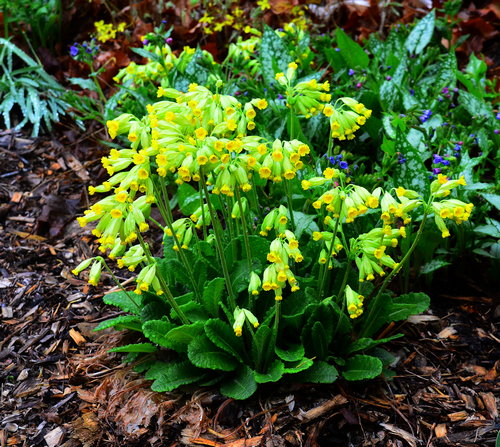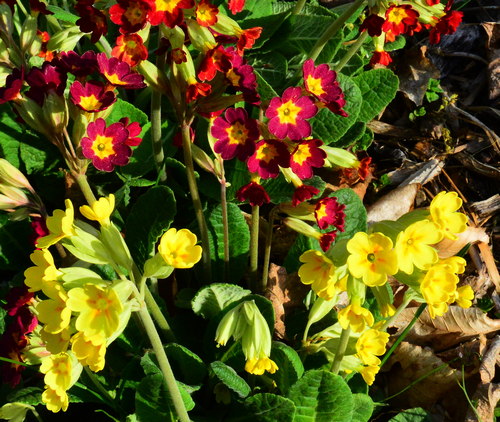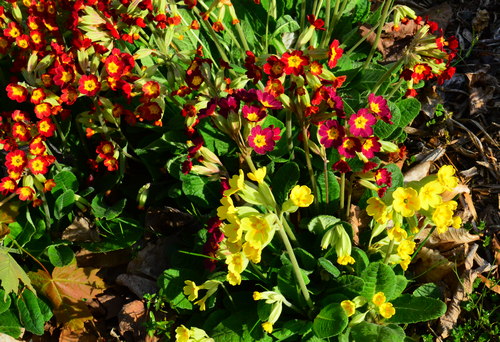Plant of the Month for December, 2018

(PRIM-yew-luh VER-iss)
General Information:
Primula veris is best known as the common cowslip. With a name like that you would think everyone grew it, but it's not common in gardens or nurseries which is really odd since this is a very easy to grow primula that sparkles every spring.

Primula veris, good sized clump ready for division: photo by Robert Pavlis
The cowslip starts to grow very early in spring and flowers mid to late spring. If it gets enough water it will stay green all summer, but if things get too dry it just goes underground in late summer until next year. It is probably the easiest primula to grow and seems very long lived. It quickly forms a large clump that can be divided every three to four years. You will also get some limited seeding.
The only negative about this plant is that the flowers are funnel-shaped and don’t open as much as some other primulas. To compensate, it produces a lot of flowers on each plant. The natural color for Primula veris is a lemon yellow, but cultivars exist in other colors. The cultivar Sunset Shades comes in yellow, russet, red and even some bi-colors.

Primula veris :photo by Robert Pavlis
The common cowslip is also known as cowslip primrose, St. Peter’s keys, palsywort, tisty-tosty, cowflops and culver keys. The term cowslip probably originated from the fact they grow very well in cow pastures. Veris means spring.
This plant is easily confused with Primula elatior , also known as the oxlip primula. The cowslip has flowers that face in several direction while the oxlip has flowers that all face in one direction. The leaves on the two plants are also different. The cowslip is ovate with the widest part at the base. The oxlip has the widest part in the middle of the leaf.

Primula veris, 'Sunset Shades' :photo by Robert Pavlis
Life Cycle: perennial
Height: 30cm (12in)
Bloom Time: spring
Natural Range: Europe and western Asia, naturalized in eastern North America
Habitat: well-drained rich grasslands, woodland edges and calcareous cliffs
Synonyms: Primula officinalis
Cultivation:
Light: part shade to heavy shade
Soil: humus rich, well drained
Water: average to moist
USDA Hardiness Zone: (3?) 4- 9
Propagation: seed, division
Seedex availability (ORG&HPS annual Seed Exchange): regularly
Germination is improved by using GA3. See http://botanicallyinclined.org/fridays-seeds-with-the-ga3-seeds-treatment
